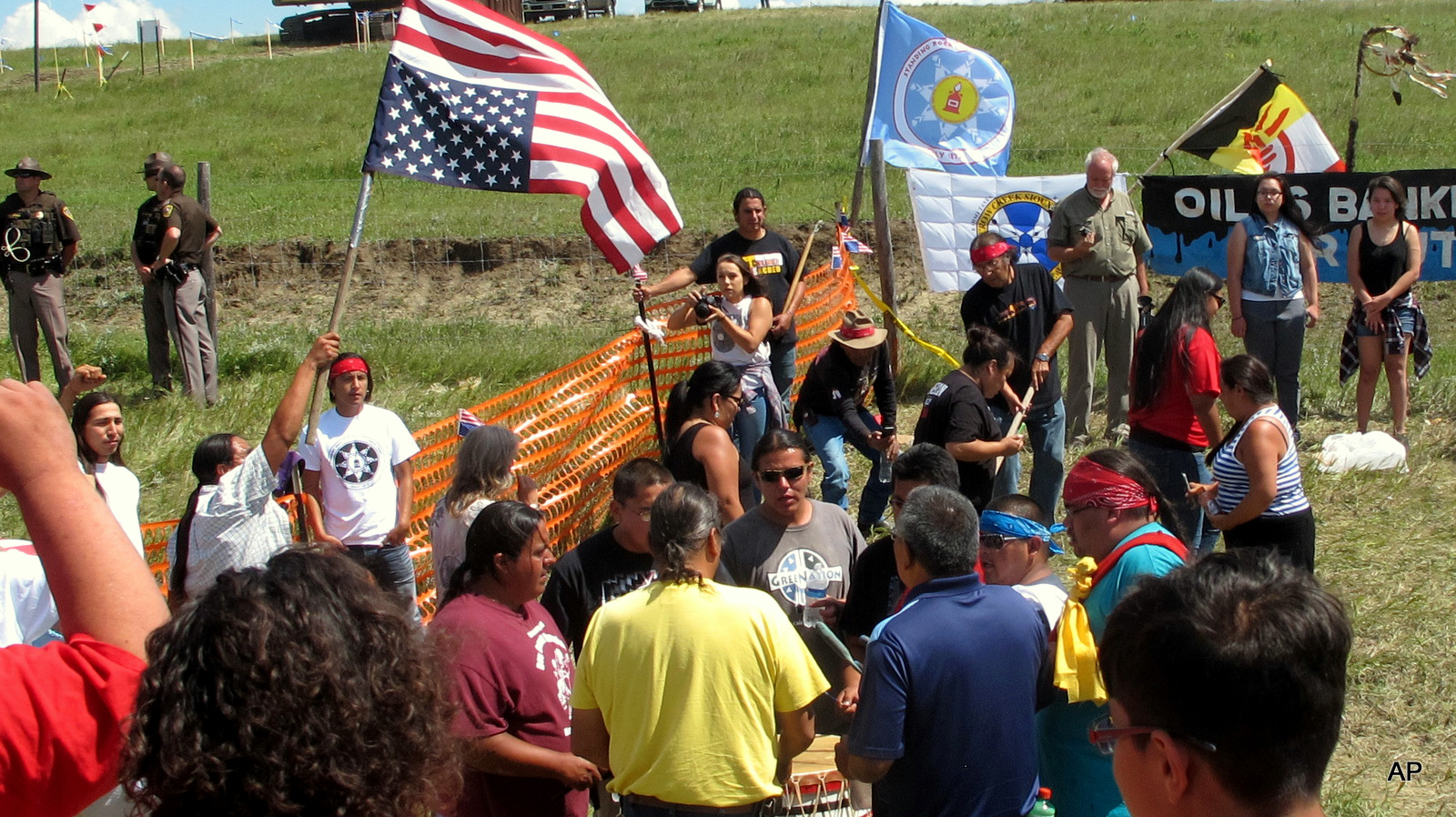
North Dakota’s homeland security removed water tanks and state-owned trailers from the Dakota Access Pipeline protest campsite Monday afternoon, taking away the camp’s main drinking water supply as the sun heated up, bringing temperatures to around 90 degrees.
“I feel like I just got shot down,” said Johnelle Leingang, executive secretary to Standing Rock Sioux Nation Chairman Dave Archambault II and the nation’s emergency response coordinator. “It’s very hurtful,” she added, according to the Bismarck Tribune.
The protests have temporarily halted the building of the US$3.8 billion oil pipeline. The Bakken pipeline, as it is also known, is almost as long as the previously proposed Keystone XL and will run through wildlife areas, sacred Native American sites and the Mississippi and Missouri rivers, prompting its critics to assert that the pipeline poses a major threat to Indigenous life as well as ecosystems.
Right before noon, a pickup truck backed up to the water tanks and hauled them away, along with two air-conditioned trailers and a command center vehicle that had all been delivered last week by the North Dakota Department of Health at the request of the Standing Rock.
Homeland Security Division Director Greg Wilz, claimed the removal was based on alleged unlawful activity, “Based on the scenario down there, we don’t believe that equipment is secure.”
Protesters believe that it is meant as further punishment for the growing protests. The campsite’s numbers have grown to about 4,000, with members from across North America sending delegations, including the Kickapoo Nation in Mexico, according to the Censored News blog.
Standing Rock spokesperson Steven Sitting Bear said, “I’ve been getting notifications from tribes all over the country that have caravans in route, so it’s continuing to grow.”
Over 87 letters and resolutions from other nations have come in from North America in support of the protest, including the Tlingit and Haida nations in Alaska and groups as far away as Japan.
After issuing an emergency declaration on Friday, North Dakota Gov. Jack Dalrymple called on federal aid to help quell the protests Monday—highway patrol, police and private security have already been deployed.
A North Dakota federal court issued a restraining order on Aug. 18 against the protesters’ at the request of the developer of the pipeline, Dakota Access, citing that worker and law enforcement safety was at risk.
Dakota Access is a subsidiary of Texas-based Energy Transfer Partners, and its pipeline will carry about 570,000 barrels of sweet crude oil daily, fracked from North Dakota’s oil-rich Bakken Formation.
In an interview on Monday, the governor reiterated that the land actually belongs to the U.S. Army Corps of Engineers, which has forced the protesters to request a permit to carry out any further actions on what is historically their own land.
State law enforcement, working with the corps, could now begin to ticket and remove what they label unauthorized campers, according to the Bismarck Tribune.
Native Americans and environmentalists have been fighting the pipeline since January when it was approved for construction, successfully halting its construction by blocking a major highway on Aug. 17.
A federal lawsuit has also been filed to stop its construction, and a judge will rule on the request for a temporary injunction on Wednesday in Washington, D.C.
Over the past two weeks, authorities have arrested 29 protesters, including the Standing Rock chairman, Dave Archambault II, and have used aircraft to disrupt cell phone reception, among other tactics, according to protesters.

